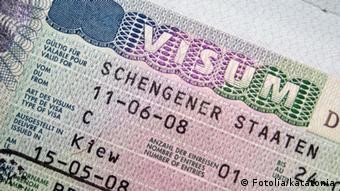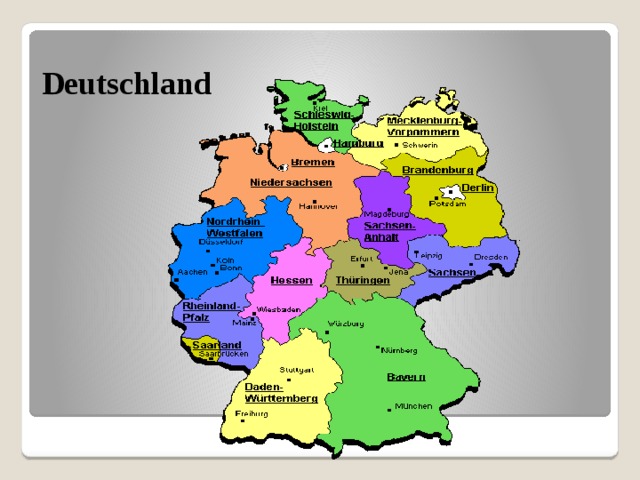
Study visa or student visa
When is a visa required for Germany?
If you want to study in Germany, you will have to apply for a study visa if you are a non-EU citizen. The issue of obtaining a study visa is one of the bureaucratic obstacles that you must overcome to start your studies in Germany. To simplify these matters for you, we will try to explain all the steps that you must do to properly apply for a student visa.
Types of study visas in Germany
The special visa for the purpose of studying in Germany is divided into two parts, and this division depends on the factor whether the student has obtained university admission or acceptance in the preparatory year, which is known in German as the Studenkolleg/Studienkolleg or not. The first visa, which is a travel visa for the purpose of studying in Germany, which is called in German Studentenvisum, can be applied for if the student obtains university admission. This visa allows the student to stay for three months in Germany and during that period he must apply for a residence permit from the Immigration and Aliens Office of his place of residence in Germany, according to the study website in Germany.
In the event that the student has not yet obtained university admission or admission to the preparatory school year,Studienkolleg, he can then apply for a visa for the purpose of obtaining a study seat. This type of visa is known in German as the Studienbewerbervisum. This visa allows the student to stay for a period of three months in Germany, during which time he can visit German universities and apply for a study seat in one of them, take language placement tests, or enroll in courses to learn it. If the student is not able, within a period of three months, to obtain an academic seat, the period of stay can be extended for up to six months. In the case of obtaining university admission or the preparatory year, the student can apply for a residence permit with the aim of studying, depending on the location of the study in Germany.
Preparing the documents required for the study visa
The basic documents that must be submitted in all cases:
- visa application
- The passport is valid for at least 6 months + two copies.
- Two passport-sized photographs, which must verify the specifications required by the relevant German embassy.
- Proof of how to cover expenses in Germany (financial ability) ... A bank statement is often required.
health insurance
Additional documents that must be submitted to obtain a study visa:
- University admission
- Certificate of proving the language level you have reached at least a (certificateB1)
- High School Certificate (original, translated, and certified copy)
- University graduation certificate with transcripts for all semesters (if you want to study a master’s degree in Germany)
- motivational speech motivation letter in addition to the CV.
Additional documents to be submitted for a German student visa:
- Conditional university admission or an invitation to participate in an entrance examination at a German university
- a message fromUni-Assist proves submission of applications to German universities for university admission
- High School Certificate (original, translated and certified copy)
- University graduation certificate with transcripts for all semesters (if you want to study a master’s degree in Germany)
How to pass the embassy interview when applying for a student visa
Germany
- Why do you want to study in Germany?
- Why do you not want to study in your country? Or any other country?
- Have you ever visited Germany?
- Will you return to your country after the end of the study or will you remain in Germany?
- Do you know anyone in Germany or at the university?
(There is an interest on the part of the German state for foreign students to come to study in Germany, but there is also an interest for foreign students to finish their studies within the prescribed period, and to return to their country or be at the disposal of the German labor market, so students with good performance should be preferred, and there is no The slightest doubt about their desire to study in Germany)
the University:
- What universities did you apply to?
- Why did you choose this university?
- Tell me about this university? What is your information about this university?
Specialization:
- Why did you choose this specialty "Civil Engineering"?
- What is the course content? What subjects will you study?
- What are the stages of study (how many semesters for bachelor's and master's)?
- What is the duration of the study?
- What do you want to be?
- What does an engineer do? What do you know about the tasks and duties of an engineer?
- What will make you excel in this field/specialty?
- Tell me about the preparatory year?
(You must prove that you seriously intend to study in Germany to improve your professional and career opportunities in your home country)
Study funding:
- How will you finance your studies?
the family:
- Tell me about your family?
- What does your father/mother do?
- How many brothers and sisters? What are they studying?
- Why did you choose a major other than your parents' major?
- Why did you choose the same major as your parents?
admissions:
- How did you get admission?
- Have you contacted the universities yourself?
- Who is the person/what is your relationship to him?
University City:
- What do you know about Berlin, for example?
- In which state is the city located?
- What are the most prominent tourist attractions in this city?
Learn German:
- Have you started learning German?
- what is your level? (You may flip the dialogue into German and ask you to introduce yourself)
- Why are you so late in learning the language?
- Why is the language institute located in one place and the university in another?
General questions:
-
What will you do after studies are over?
-
What will you do after you return to your country?
-
What will you do if your visa application is refused? Do you have alternate plans?
Also expected questions:
- What will you do if your visa application is refused?
- How long will you stay in Germany (full period of study)?
- Aren't you too young to study there?
- Do you have relatives in Germany? What are they doing?
- Where will you live there? What is the expected rental value?
In the event that the student does not reach the legal age when applying for the study visa
A special power of attorney from the parents of a person residing in Germany to sponsor the minor student until he reaches the legal age (18 years), certified by the foreign ministry of the country and the German embassy, and translated into the German language, provided that the person assigned to him (resident in Germany) sends an email to the German Consul He informs him of his consent to this, along with attaching a copy of his identity and residence in Germany. (See the attached power of attorney form!).
There is no need for this power of attorney if the student will turn 18 within a period of two months from the date of the interview and submit the study visa application to the embassy, because in this case he will reach the legal age (18) before his travel.
NB:
- The original documents shall be submitted in addition to two copies thereof
- All documents issued in Arabic must be translated
- Attestation of documents for students up to 26 years is free of charge
- The duration of the study visa procedures is from 2 - 3 months, it may be less or more
- Study visa fees in Kuwait are about 25 dinars - subject to increase or decrease
Tips for passing the German embassy interview
Everyone who is about to meet with the embassy should know that the embassy or consulate interview is the first step on the way to travel to Germany... This step certainly precedes the preparation and preparation phase. In the preparation and processing stage, as we mentioned in previous videos, the student has already started - after completing his secondary studies in preparing papers and writing to German universities to obtain conditional admission and registration in one of the language institutes to complete the language levels required to start university studies... It is highly recommended to start in Learn the German language well before the date of the embassy interview, as many embassies and consulates refuse to grant visas to those who have not yet begun to learn the language... The embassy / consulate considers those who begin to learn the language before the interview as serious people with a plan and a serious and practical vision What awaits their academic and living future in Germany, as evidenced by their keenness to have prior language knowledge before traveling..
Firstly:Try to arrange all your papers required by the consulate/embassy before the interview (check the previous episodes to know the papers and documents required)... The consulate or the embassy requires two copies of all papers... Keep one or two additional copies of all your papers.
Secondly:Try to get to know the embassy or consulate before the day of the interview. Go there on the pretext of documenting some documents, or inquiring about something.
Third:Don't get nervous. I advise you not to be nervous at all, and to bear in mind that the interview with the embassy will not be with a vampire or a person who will determine his fate and future, but rather he should realize that all success is in the hands of God Almighty alone. For the duration of the interview, keep your nerves calm
Fourthly:Good-looking and smiling: Make sure that your appearance is a mirror of your personality, reflecting a serious, mature personality. The consular employee upon entering greeted in German with a smile, not nervous or frowned upon...
Fifth:Answer as much as the question, try to be clear, confident, specific and related to the question
Sixthly:Beware of arguing with the consulate employee....be friendly and smiling with the employee all the time and always keep your nerves calm, no matter how hard the employee tries to provoke you or make you tense. He comes to the interview and it is repeated, unconvincing or useful talk. Tell him that this is the truth... He tries to provoke you to know your reaction. Are you a quick-tempered, aggressive person....etc? He asks you questions related to who will finance your studies, how much the father and mother's salary/pension, the number of siblings, their ages and educational levels...etc.
Seventh:Study motivation letter well. Memorize all the information, motives and reasons you wrote in the motivation letter, the employee may ask you to write him a letter of motivation by hand .... Try to explain to the consular employee that you are a person worthy of studying in Germany, and that you have been working on rehabilitating and preparing yourself in all respects for months .
Eighth:Try to have a sequence of events about your first year in Germany, starting with your language studies up to a certain level, then an entrance exam to enter the preparatory year, then the preparatory year and information about it, when to start, the types of preparatory year...etc... All of this information will To leave a very good impression on the employee and to convince him that you are a serious, ambitious person with neat ideas with a goal and a vision for your future. Do not forget to go to the interview ten minutes early, no more.


